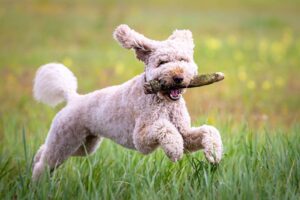As we welcome a furry addition into our homes, we embark on a journey filled with joy, love, and companionship. From the playful antics of puppyhood to the calm maturity of adulthood, every stage of your dog’s life is a precious chapter waiting to be nurtured and cherished. In this article, we will explore the key aspects of caring for your canine companion as they navigate through the various life stages, ensuring they receive the love and support they need to thrive. Join us as we delve into the world of “From Puppyhood to Adulthood: Nurturing Your Dog Through Every Life Stage.”
– Understanding the Developmental Stages of Your Dog: From Cute Pup to Mature Adult
As a dog owner, it’s essential to understand the various developmental stages that your furry companion will go through from the time they are a cute, curious pup to a mature, adult dog. Each stage comes with its unique challenges, joys, and needs, and knowing how to navigate them will help you provide the best care for your canine companion.
**Puppyhood (0-6 months):**
- Exploration and curiosity: Puppies are like little sponges, soaking up all the new sights, sounds, and smells around them.
- Learning basic commands: This is the time to start teaching your puppy essential commands like sit, stay, and come.
- Puppy-proofing your home: Puppies are notorious for getting into mischief, so be sure to puppy-proof your home to keep them safe.
**Adolescence (6-18 months):**
- Energy bursts: Adolescent dogs have boundless energy and may need more exercise to keep them from getting bored and destructive.
- Socialization: It’s crucial to continue socializing your dog during this stage to ensure they grow up to be well-adjusted and friendly adults.
- Consistent training: Adolescence is a challenging time for training, but consistency and patience will pay off in the long run.
– Nurturing Your Dog’s Physical Health: Proper Nutrition, Exercise, and Vet Care
Nurturing your dog’s physical health is crucial in ensuring they live a long and healthy life. From puppyhood to adulthood, your furry friend relies on you to provide proper nutrition, regular exercise, and routine veterinary care to thrive.
**Proper Nutrition:**
- Choose a high-quality dog food that is appropriate for your dog’s age, size, and breed.
- Include a balanced mix of protein, carbohydrates, fats, vitamins, and minerals in their diet.
- Avoid feeding them table scraps and be mindful of portion sizes to prevent obesity.
**Exercise:**
- Engage your dog in daily physical activity, such as walks, runs, or playtime in the backyard.
- Consider their energy level and adjust the intensity and duration of exercise accordingly.
- Regular exercise not only helps maintain their weight but also promotes mental stimulation and overall well-being.
– Supporting Your Dog’s Mental and Emotional Well-being: Training, Socialization, and Enrichment Activities
As your furry companion grows from a playful puppy to a mature adult, it is crucial to provide them with the necessary tools to support their mental and emotional well-being. Training your dog not only helps them learn good manners, but it also stimulates their brain and boosts their confidence. **Positive reinforcement** techniques such as rewards and praise are excellent ways to motivate your dog during training sessions.
Socialization is another key aspect of nurturing your dog’s mental and emotional health. Exposing your furry friend to different environments, people, and other animals from a young age can help prevent **anxiety** and **aggression** issues later in life. Enrolling your dog in puppy classes or setting up playdates with other friendly dogs can be beneficial for their social development.
Enrichment activities are essential for keeping your dog’s mind engaged and satisfied. Providing mental stimulation through **puzzle toys**, **interactive games**, and **scent work** can prevent boredom and destructive behaviors. Incorporating regular exercise like walks, runs, or agility training into your dog’s routine not only helps them stay physically healthy but also improves their mental well-being.
– Adjusting Care and Routine as Your Dog Ages: Senior Dog Care Tips and Considerations
As your furry companion transitions from a playful puppy to a wise senior, it’s important to adjust their care and routine to provide them with the best quality of life in their golden years. Here are some senior dog care tips and considerations to keep in mind:
- Regular Vet Check-ups: Just like humans, senior dogs need more frequent vet visits to monitor their health and address any age-related issues.
- Nutritious Diet: Switching to a senior-specific diet can help maintain your dog’s weight and provide essential nutrients for their aging bodies.
- Gentle Exercise: While exercise is still important for senior dogs, it’s essential to adjust the intensity and duration to prevent strain and injury.
Adapting to your dog’s changing needs can help them enjoy a comfortable and happy life as they age gracefully by your side.
Closing Remarks
As we journey through life with our furry companions, it is important to remember that just like us, they too go through different stages of development. By understanding and nurturing your dog through each life stage, from puppyhood to adulthood, you are not only providing them with the care and support they need, but also strengthening the bond between you and your loyal companion. Remember to cherish every moment, embrace every milestone, and continue to grow together as you navigate the journey of life side by side. Here’s to a lifetime of love, laughter, and precious memories with your beloved four-legged friend.



